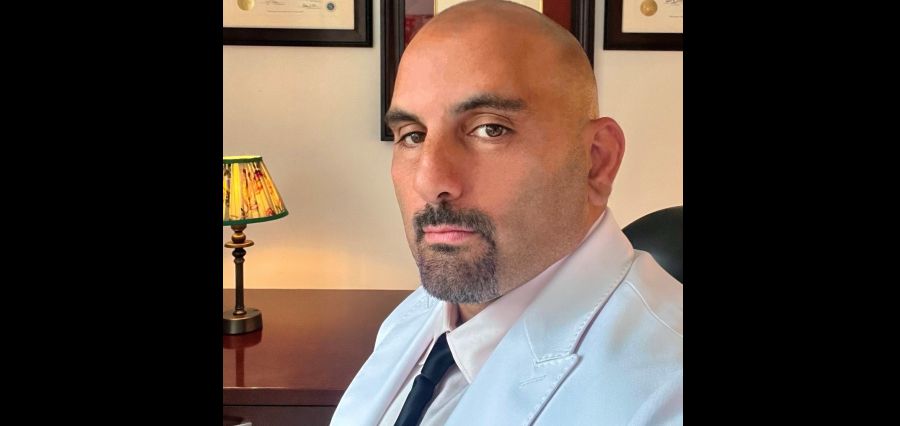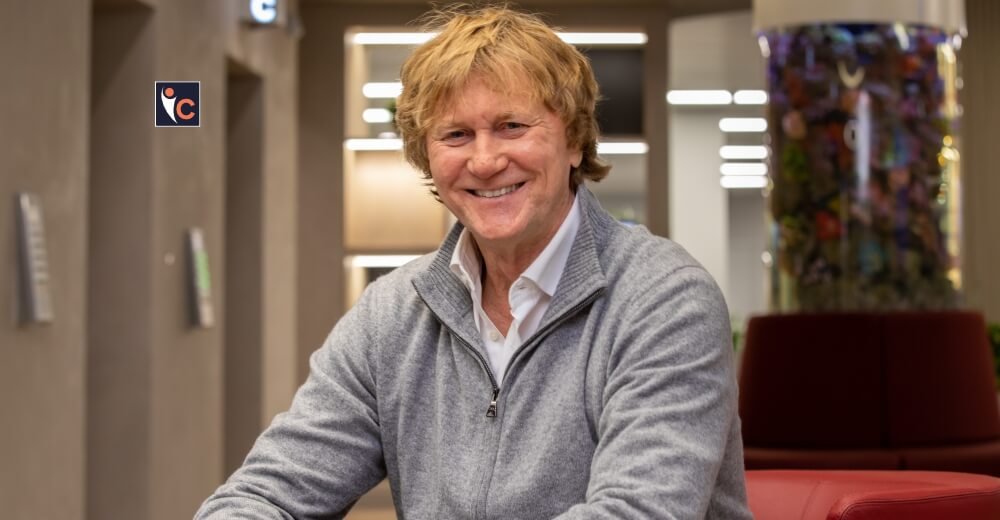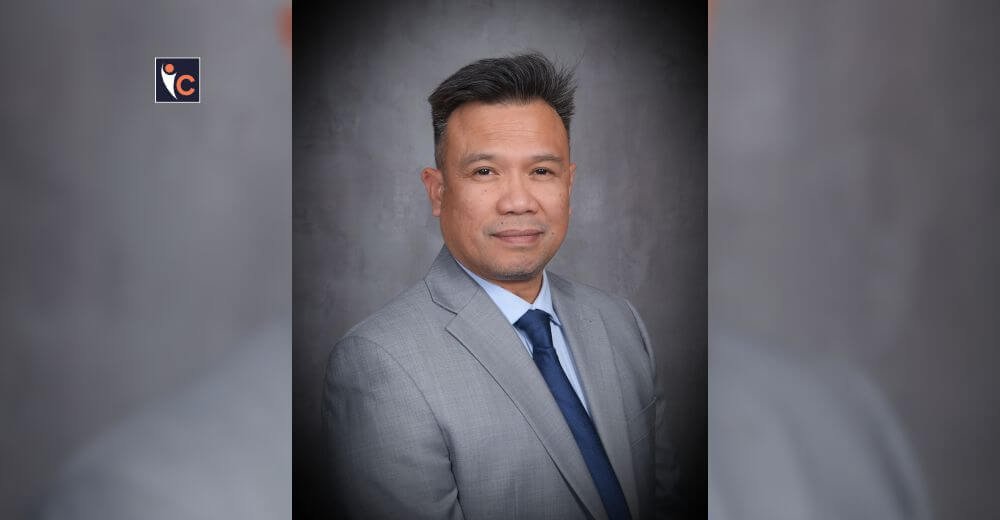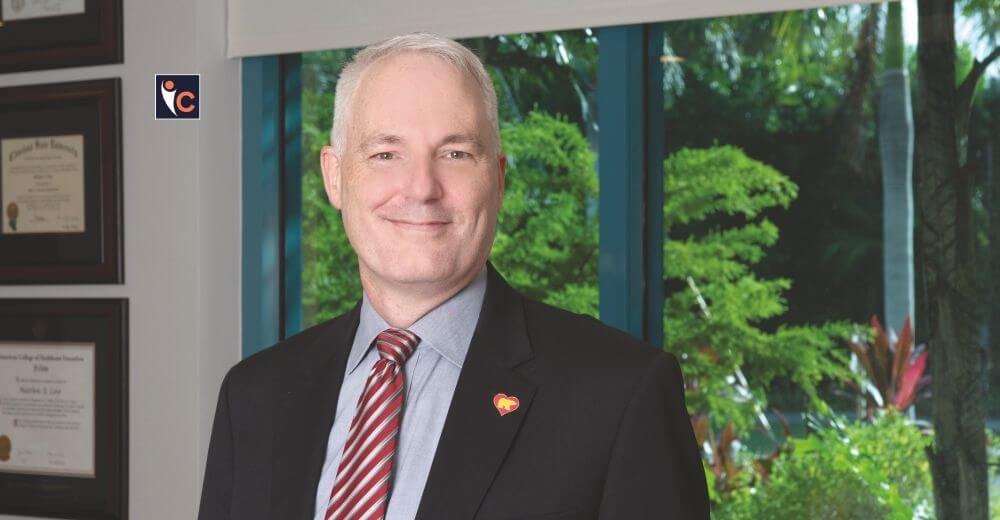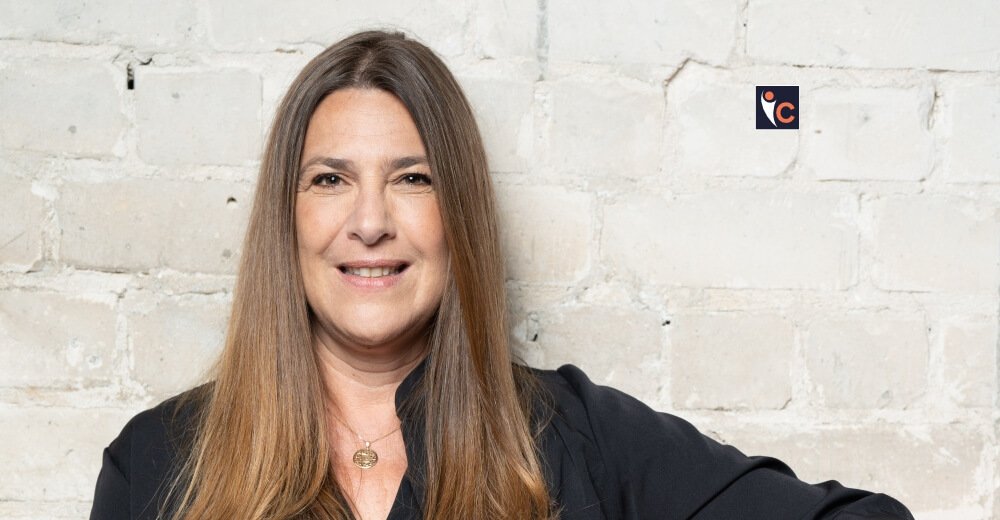Jawad Saleh, Chief Pharmacy Officer at the Hospital for Special Surgery (HSS), exemplifies the evolving role of a CPO, which has become crucial in advancing healthcare. In his role, he is responsible for overseeing all pharmaceutical services, ensuring they meet rigorous standards of safety, efficacy, and efficiency. His career highlights a strong focus on improving healthcare delivery through leadership, operational excellence and clinical acumen.
Saleh’s professional journey includes significant achievements and ongoing development. Armed with a Doctor of Pharmacy (Pharm.D.) degree and extensive clinical experience, he has pursued advanced education, including a Master of Science in Clinical Service Operations from Harvard Medical School, and actively participates in key professional organizations such as the American Society of Health-System Pharmacists (ASHP) and the Health Leaders of New York (HLNY). These experiences have shaped him into a leader capable of driving progress in pharmaceutical services at HSS.
Let’s explore how Jawad Saleh’s remarkable journey and strategic insights as a Chief Pharmacy Officer are shaping the future of pharmaceutical services and enhancing patient care!
A Strategic Journey to Leadership
“Becoming a Chief Pharmacy Officer requires a strategic approach and a series of milestones throughout your career,” says Saleh. His journey began with both a B.S. Phm and Pharm.D. degree, followed by obtaining licensure as a pharmacist. “Gaining clinical experience in various healthcare settings is needed, from hospitals to retail pharmacies, will help build a solid foundation,” he emphasizes.
As he progressed in his career, developing leadership skills became crucial. He took on managerial roles, oversaw operations, and led teams effectively. Pursuing advanced degrees like an MCSO and numerous pharmacy certifications further enhanced his management capabilities. “Consider pursuing advanced degrees like an MBA or MHA, or certifications in Pharmacy Administration, to enhance your management capabilities,” he advises.
Active involvement in professional organizations provided networking opportunities and kept him informed on industry trends. Demonstrating a track record of successful initiatives, understanding healthcare policy, and incubating innovation in pharmacy practice were key to his progression. “Career progression through roles with increasing responsibility and a commitment to continuous learning will ultimately pave the way to achieving the CPO position,” he notes.
Inspiration and Evolution in Pharmacy
Saleh’s decision to pursue a career in pharmacy was deeply influenced by him observing the devastating effects of drug abuse and the toll it takes on individuals, families, and communities. “Growing up in New York City, where one witnesses firsthand the impact of illicit drugs and the healing power of medications, deeply influenced my decision to pursue pharmacy,” he shares.
Saleh’s early experiences fostered a strong desire to make a positive difference in healthcare and combat the negative consequences of substance abuse. “The ability to witness firsthand how medications can transform lives and improve health outcomes can be incredibly inspiring,” he states.
Growing up in a marginalized community highlighted the stark disparities in access to healthcare. Pharmacists often played a critical role as accessible healthcare providers in these communities. By becoming a pharmacist, Saleh aimed to bridge gaps in access to medications and health information. “By advocating for patients who might otherwise struggle to navigate complex healthcare systems,” he emphasizes, he sought to influence policies and practices that affect marginalized communities.
Inspiring Others Through Leadership
Saleh was honored as the class speaker for his master’s program at Harvard Medical School. His speech at the Harvard Club of Boston resonated deeply with many, drawing from his experiences and reflections on leadership. “When I was notified of the nomination, I was sitting on my bed, watching my two young boys playing in the backyard,” he recalls. He pondered on how to make a difference in challenging times. “What can I do differently as a father to mold and foster an upbringing that can both contribute and protect them from the times ahead? Love is the way.”
Reflecting on his childhood in New York City and summers in Palestine, he shared a powerful message: “Be true to yourself. Imposter syndrome is an imaginary barrier. ‘With pain there’s light, you just have to find it.’” Saleh urged his audience to embrace their identities and use their platforms to make meaningful contributions. “If you don’t embrace where you’ve come from, your path forward will always be a lie.”
Innovative Approaches to Addressing the Opioid Crisis
“My life has been one of resilience and aspiration,” Saleh shares, shaped by the adversity of growing up around the subsidized housing section of Brooklyn. As a product of immigrants, with his mother as a homemaker and his father as a cashier at the local convenience store, education became the cornerstone of his dreams. Saleh’s early life was marked by the harsh realities of the opioid epidemic, witnessing its devastating impact on his neighborhood, and losing his cousin and several close friends to opioid overdoses. This personal tragedy spurred the creation of “Demons in the Pillbox,” a heartfelt response born from his grief and channeled through poetry.
Saleh’s powerful poem caught the attention of TEDx Asbury Park through a LinkedIn post and internal recommendations. Despite the tight timeline—just four weeks to prepare for an event where most speakers had six months—he embraced the challenge. During his rounds in the ICU, Saleh recorded his performance in a hospital bathroom, dressed in scrubs and a lab coat. This impromptu yet passionate recording earned him a spot at TEDx, where his unconventional delivery method resonated deeply with the audience.
The opioid epidemic, ongoing for decades, often fails to capture the attention of youth, politicians, healthcare professionals, and leaders through traditional lectures. Saleh deliberately chose a unique approach to ensure his message would be heard across generations, financial classes, and professional statuses. His goal was to ignite change and inspire those who could make a difference.
Leadership in Global Health
Saleh also leads humanitarian efforts as the Executive Director of the Global Musculoskeletal Health Equity Division (GMHED) at HSS. “GMHED is the global humanitarian wing of the Hospital for Special Surgery, and we aim to be the #1 musculoskeletal humanitarian program in the world,” Saleh explains. The division, initially founded by Dr. Swetha Pakala, focuses on building capacity in under-resourced regions like Ghana and India by providing specialized training and education.
Saleh played a crucial role in improving pharmacy operational efficiency and infrastructure. His role has since expanded beyond pharmacy, to overseeing overall strategy, partnerships, and finances for the entire program. “You can never achieve true greatness without giving some of yours back to the world,” Saleh states, reflecting his commitment to global health equity and humanitarian work.
Responsibilities and Ensuring High-Quality Services
Saleh ensures all pharmacy services meet safety, efficacy, and efficiency standards. “Strategic leadership is paramount,” he says, emphasizing the alignment of pharmacy goals with the organization’s mission.
He ensures smooth operations through robust medication procurement, inventory management, and distribution systems. “Upholding strict adherence to regulatory standards and implementing quality assurance programs are integral parts of my role,” he states.
Promoting clinical excellence, Saleh encourages evidence-based practices and continuous professional development. “Supporting the implementation of clinical programs that improve patient outcomes underscores our commitment to delivering effective pharmaceutical care,” he shares.
Managing financial aspects, he focuses on optimizing medication costs and budget allocations. “By optimizing financial resources, we ensure sustainability while maintaining the highest standards of pharmaceutical service delivery,” he notes.
Saleh fosters interdisciplinary collaboration among healthcare providers to enhance patient care. “Implementing quality improvement initiatives is central to our continuous advancement,” he adds.
Challenges and Effective Solutions
Regulatory complexity remains a constant concern, necessitating vigilant adherence to evolving standards from entities such as the FDA and state boards of pharmacy. “Balancing financial pressures is another significant challenge,” Saleh mentions, where he must optimize medication procurement and navigate reimbursement complexities.
Ensuring medication safety and quality amidst increasing complexities in drug therapies and technology integration demands robust quality assurance programs. Surprisingly, when asked what the biggest one challenge has been in this role – he simply said – people. How to lead and motivate your staff and build a sense of trust isn’t a walk in the park. Navigating people and personalities within your staff, peers, and even those you report too is a delicate balance, which takes a combination of confidence, emotional intelligence, and selflessness
Technological integration presents another hurdle. Saleh works to implement and optimize pharmacy technologies while addressing interoperability, data security, and staff training needs. “Workforce management is crucial,” he emphasizes, requiring efforts to recruit, train and retain skilled pharmacy professionals amidst ongoing shortages.
Staying Updated and Innovative Initiatives
Keeping up with the latest advancements in pharmaceutical research, regulations, and best practices is essential. Saleh prioritizes continuing education by attending relevant conferences, seminars, and continuing education programs. “Active membership in professional organizations like ASHP, APhA, and the American College of Healthcare Executives (ACHE) facilitates access to up-to-date resources,” he says.
Saleh has implemented several innovative initiatives at HSS to enhance patient care and operational efficiency. Collaborative Practice Agreements (CPA), with the infectious disease team at his organization is one example. “By integrating advanced pharmacy automation systems and leveraging electronic health record software, we have streamlined medication dispensing and documentation processes,” he shares.
Additionally, clinical pharmacy services have expanded to include both Anticoagulation and Opioid stewardship programs. “Clinical pharmacists have become a key element of the interdisciplinary team and round daily on the patient floors,” he notes. Saleh’s initiatives at HSS reflect a commitment to innovation in pharmacy practice, leveraging technology, expanding clinical services, promoting patient education, fostering collaboration, and ensuring continuous improvement.
Embedding a Culture of Continuous Improvement
At HSS, embedding a culture of continuous improvement and encouraging teams to seize new technologies is integral. “Understanding the overall mission of your organization is key,” he says. Clearly communicating the importance of innovation and setting specific goals that align with the organizational vision is crucial.
Proper training is also a key aspect of success when utilizing technology to improve healthcare. “Providing ample learning opportunities, such as training programs and workshops, ensures your team stays informed and equipped,” he advises. Recognizing and rewarding innovative efforts motivates teams to explore new solutions and methodologies.
Providing necessary resources and support, including access to tools and ongoing feedback mechanisms, enables teams to implement new technologies effectively. “Promoting adaptability and learning from successes and failures further strengthens a culture of continuous improvement,” Saleh adds.
Emerging Trends and Technologies
The future of the pharmacy industry is being shaped by several emerging trends and technologies ready to revolutionize healthcare delivery. “Tele-pharmacy and telemedicine are gaining prominence,” Saleh notes, enabling pharmacists to provide remote consultations and monitor patient health from a distance.
Personalized medicine, fueled by advances in pharmacogenomics, is redefining treatment strategies. “Artificial Intelligence (AI) and machine learning are transforming drug discovery, medication management, and clinical decision-making,” he states. Blockchain technology is improving transparency and security in pharmaceutical supply chains.
Digital health tools such as mobile apps and wearable devices empower patients to manage their health proactively. “3D printing is facilitating the development of customized drug formulations,” Saleh adds. Robotics and automation in pharmacy operations are streamlining processes, reducing errors, and allowing pharmacists to focus more on patient care.
Advice for Aspiring Pharmacy Professionals
As the role of CPOs continues to evolve, Saleh emphasizes the importance of aspiring professionals developing a growth mindset. “Developing a growth mindset is crucial as it fosters resilience,” he advises. He believes that CPOs will increasingly play a strategic leadership role, which requires a deep understanding of pharmacoeconomics, healthcare analytics, and population health management.
Leadership in this evolving sector is fundamentally about people. “Having a clear vision and strong communication skills is paramount,” Saleh underscores. He also highlights the necessity of adaptive leadership, especially in today’s fast-changing environment. “The best example of this is the COVID pandemic,” he notes, stressing that adaptability is crucial for survival.
“Political savviness is essential for leaders to navigate complex environments,” Saleh asserts. “Continue to work hard as your time will always come,” he encourages, adding that opportunities arise at different times for different individuals, “The common formula to success– as a mentor once told me – is patience, persistence and luck.”
To know more about Jawad Saleh and his work, check out below links:
Read More: Click Here






